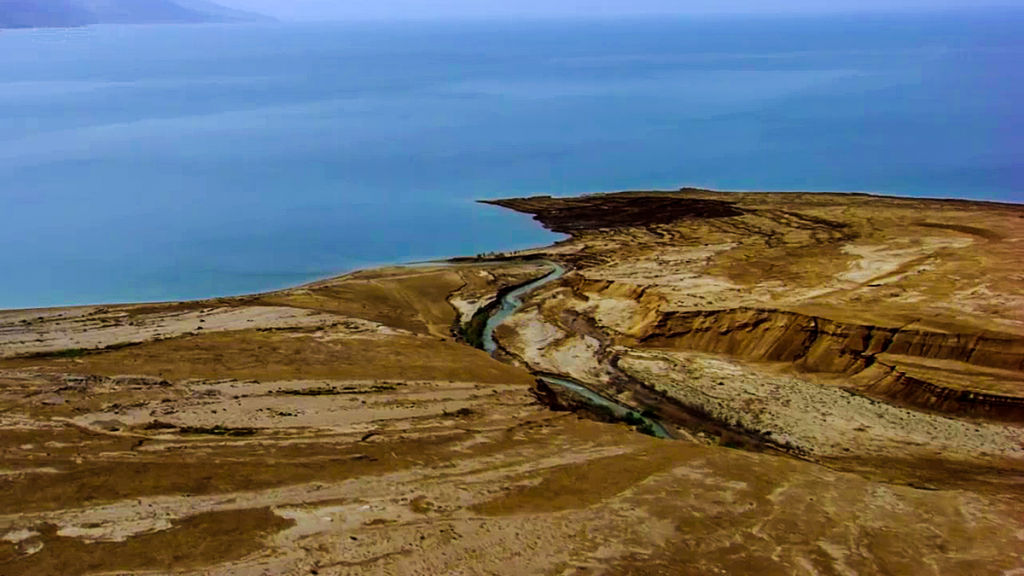Meditations
In the wilderness prepare ye the way of Yahweh!
Isaiah 40: 1–11
1 ¶ Comfort ye, comfort ye my people, saith your God.
2 Speak ye comfortably to Jerusalem, and cry unto her, that her warfare is accomplished, that her iniquity is pardoned: for she hath received of the LORD’S hand double for all her sins.
3 The voice of him that crieth in the wilderness, Prepare ye the way of the LORD, make straight in the desert a highway for our God.
4 Every valley shall be exalted, and every mountain and hill shall be made low: and the crooked shall be made straight, and the rough places plain:
5 And the glory of the LORD shall be revealed, and all flesh shall see it together: for the mouth of the LORD hath spoken it.
6 The voice said, Cry. And he said, What shall I cry? All flesh is grass, and all the goodliness thereof is as the flower of the field:
7 The grass withereth, the flower fadeth: because the spirit of the LORD bloweth upon it: surely the people is grass.
8 The grass withereth, the flower fadeth: but the word of our God shall stand for ever.
9 O Zion, that bringest good tidings, get thee up into the high mountain; O Jerusalem, that bringest good tidings, lift up thy voice with strength; lift it up, be not afraid; say unto the cities of Judah, Behold your God!
10 Behold, the Lord GOD will come with strong hand, and his arm shall rule for him: behold, his reward is with him, and his work before him.
11 He shall feed his flock like a shepherd: he shall gather the lambs with his arm, and carry them in his bosom, and shall gently lead those that are with young.
Who is this voice? John the Baptist? Well yes, he was a voice (John 1:19–23), and he did make that cry from the wilderness beckoning any who would respond to come into the wilderness to prepare for the coming of the Lord. But, the voice in Isaiah Chapter 40 is not only John the Baptist. Likewise, while the initial message was to “My People” (v.1), and “Jerusalem” (v.2) in the time of her captivity in Babylon, the message, the messengers, and the recipients of the message have many applications. It all applies to us today.
Yahweh cries in verses 1–2 to unspecified servants, “Comfort ye, comfort ye my people”. He speaks to servants (plural), not just to one person. Yahweh is anxious to comfort His people, and commands His servants to speak to their heart (v.2). His people are discouraged (v.27), and feel that God isn’t aware of their plight; Yahweh wants His servants to tell His people that He does care, and that He’s coming to save them. But, they need to prepare.
The preparation is to take place in the wilderness. It’s to prepare the way (path, road) of Yahweh, and to “make straight (level) in the desert a highway (public road) for our God”. The way of Yahweh is the path that He is on. We must be on that same road to meet Him. How do we prepare? By casting aside stumbling blocks; by building a highway that’s level and straight (see Isa. 57:14; 62:10). This work of preparation is important.
The immensity of this work is seen in verse 4:
“Every valley shall be exalted, and every mountain and hill shall be made low: and the crooked shall beamed straight, and the rough places plain”!
This is a work of mammoth proportions! It speaks of the humbling of flesh, so that we are all on the same level (James 1:9–11). The preparation in the way in the wilderness is the humbling of the flesh, and it’s only when that’s done that we are able to see the glory of Yahweh, and we’ll all see it exactly the same way (v5)! How? Because, being humbled, flesh doesn’t blind our vision.
The same thing is said again in another way in verses 6–8 (and don’t we need reminding of these things?), through yet another voice:
“The voice said, Cry. And he said, What shall I cry? All flesh is grass, and all the goodliness thereof is as the flower of the field: The grass withereth, the flower fadeth: because the spirit of the LORD bloweth upon it: surely the people is grass. The grass withereth, the flower fadeth: but the word of our God shall stand for ever.”
No matter what position, lineage, skills, experience, or years we’ve had, even if we stand out as a beautiful flower against the backdrop of millions of blades of grass, we, along with the grass, wither and die. We are all transient. But God’s Word, by contrast, remains and will rise up in testimony in the Age to come when the glory of God shall be in the earth!
The question we must ask is: Why are we called into the wilderness to do this preparation?
- It’s quiet; it’s a place to think.
- It’s immense; it makes us feel our smallness.
- It’s humbling; it causes us to see reality.
- It’s inspiring; it helps us see the possibilities.
It’s only when we come to this state of mind that we can be ready to see the glory of God.
We take up this commission, then, as commanded by our God, to be a voice. To cry out to those who hear, to come away from the noise and distractions of daily life, to humble ourselves to listen to the Word of God. Our Lord is coming, and he comes as Judge to give every man according as his work shall be (v.10), and he comes as a caring shepherd to assist the humble that know their need in the arduous way (v.11).
See our exposition on Isaiah 40:1–11
